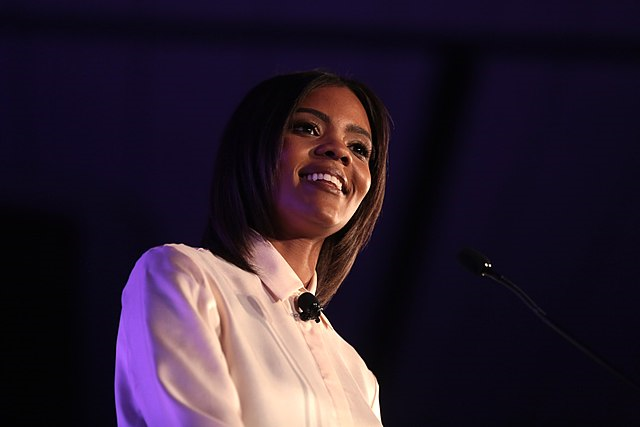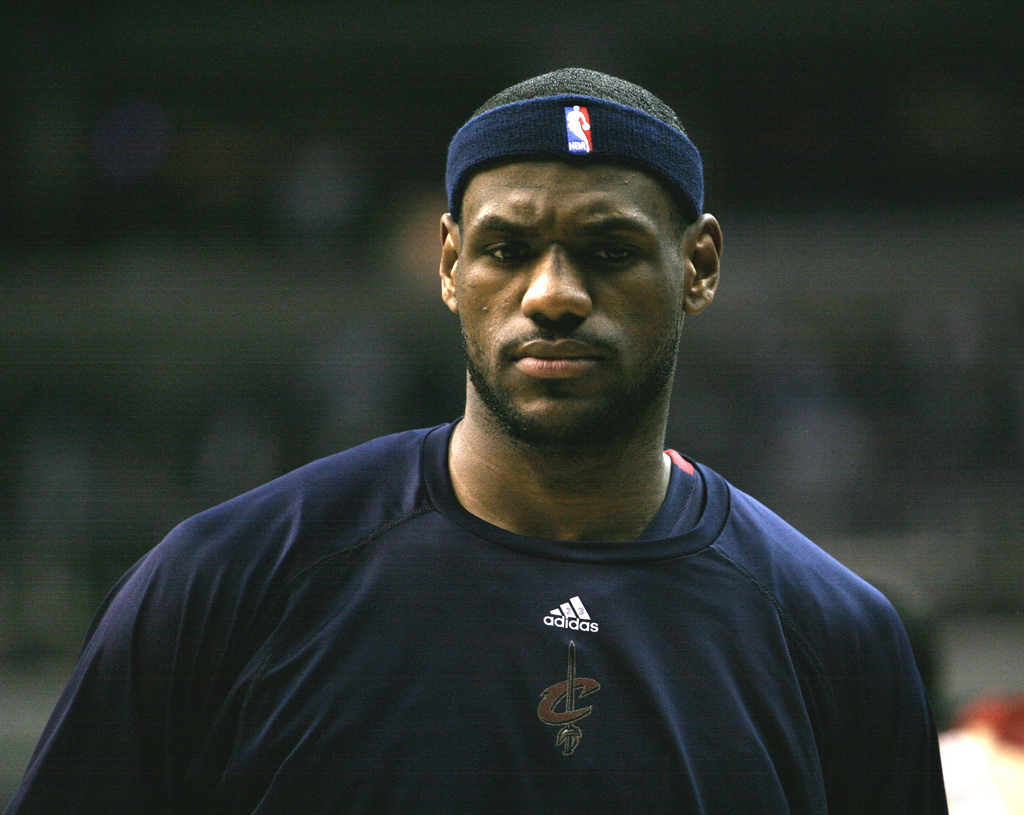
Excitement and dread.
These two moods best describe how I feel heading into a new year and a new decade. On one hand, I am eager to see how the United States presidential election and how impeachment proceedings against President Donald Trump will shake out. On the other hand, I worry voters are prepared to repeat a very dumb decision they made back in 2016 on top of being concerned about the health of the global economy, the future of our planet, and the welfare of the most disadvantaged and disenfranchised segments of the population. I’m getting my popcorn ready—and trying not to bite my nails as I prepare to eat it.
Where do you stand as we turn the calendar to 2020? Are you looking ahead, saying “good riddance” to 2019? Are you pumping the brakes, cautious about the hell that the coming year might have to offer? Or, if you’re like me, are you somewhere in between? Whatever your sentiments, this recap of the past year is designed to reflect on some of its prevailing themes, at least as far as this writer covered it. So without further ado, stop looking at those Baby Yoda memes and let’s take a look back on the year that was.
Tucker Carlson’s white power hour
FOX News has been a repository for false or misleading narratives and opinion journalism masquerading as real news reporting for some time now. Of late, though, its prime time lineup has seemed particularly reprehensible and soulless.
Trying to choose which of FOX’s personalities is the worst is a bit like deciding whether you’d rather be burned alive, poisoned, or shot. However you look at it, there’s a terrible option awaiting you. Sean Hannity is a shameless Trump apologist who serves as a propaganda machine for the president and who regularly traffics in conspiracy theories. Laura Ingraham likewise is a staunch Trump defender who has assailed Democrats for voting to impeach Trump and who has targeted liberal critics of her employer as “journo-terrorists,” inciting her followers to spew venom in their direction.
If one figure takes FOX News’s cake of hateful conservative rhetoric, however, that person might just be Tucker Carlson, who has demonized not just illegal immigration, but all non-white immigration to the United States, lamenting would-be immigrants as making “our own country poorer and dirtier and more divided.” Not exactly lifting our lamp beside the golden door, are we, Tucker?
Depending on how you view American attitudes toward immigration, such an argument is either un-American or distinctly American, but it certainly goes against our stated values as that fabled melting pot of the North American continent. Tucker Carlson is a white nationalist who espouses racist views regularly from his position as a highly-watched political commentator. At heart, it doesn’t matter what he believes. His platform for cruelty and hate outweighs his protestations on the basis of free speech, and calls for boycotts of his program are more than warranted.
Candace Owens is a conservative grifter
Candace Owens makes a legitimate point: Blacks don’t necessarily have to vote for Democrats. In truth, they, like members of other minority groups, have probably been underserved by the Democratic Party. That said, this reality does nothing to absolve the Republican Party of being an exclusionary group of largely white males which harbors actual white supremacists. It also doesn’t mean that Owens has any legitimacy as a political activist.
Conservatives like Owens because she makes their talking points for them and because they can point to her as a token example of how the GOP isn’t just a repository for folks of the Caucasian persuasion. The problem with Owens’s service in this capacity is that she makes her arguments in bad faith and/or in ignorance of the true history of past events.
For example, she downplays the existence of racism in America despite her and her family members being a victim of it. Because she’s NOT A VICTIM, YOU LIBERAL CUCKS. YOU’RE THE SNOWFLAKE. Also, there was the time she tried to claim Adolf Hitler wasn’t a nationalist, as if to say that the Führer was fine except for when he took his act on the road. Right.
Candace Owens is someone who has filled a void among today’s conservatives to rise to prominence despite being a relative newcomer to the fold. But she’s an opportunist who owes her popularity in right-wing circles to YouTube more than the content of her speeches and she shouldn’t be taken seriously—you know, even if she was asked to testify before Congress.
Making America Great Again—whether you realize it or not
Americans frequently lament the political divide which dominates the nation’s discourse. When they can’t even agree on the same set of facts let alone holding different opinions, however, the notion that many of us are living in separate realities becomes readily apparent.
Take the case of a group of students from Covington Catholic High School attending a March for Life rally in Washington, D.C. and Nathan Phillips, a Native American and veteran on hand for the Indigenous Peoples March. Upon members of the Black Hebrew Israelites shouting epithets at the kids on the steps of the Lincoln Memorial, Phillips interceded to try to diffuse the situation, singing and drumming. The students, meanwhile, several wearing MAGA hats, mocked Phillips, with one boy, Nick Sandmann, standing face-to-face to him and smirking derisively.
Of course, that Sandmann and his family would be sent death threats is inexcusable. That media outlets and public figures would post hasty retractions and hold softball interviews with the fresh-faced white kid, all the while doubting their initial reactions to what they saw, though, is wrong all the same. Spare me the hagiographic sanctification of Sandmann’s “right” to do what he did. His privilege existed before this incident and will certainly continue long after it. Furthermore, the both-sides-ing of this case is appalling in light of the implied racism herein.
Alas, this is emblematic of America in the era of President Trump. If you believe him and his supporters, the economy has never been doing better, immigrants are a danger to the country, Israel is our only ally in the Middle East and that will always be the case, and he alone is the reason why North Korea hasn’t moved to nuke us. These are the falsehoods perpetuated by a Divider-in-Chief who, as he gives as a State of the Union address, only promotes more disunity.
There’s something about “The Squad”
Outside of Nancy Pelosi and Hillary Clinton, whose evident shadow presidency has loomed over Donald Trump’s tenure since before it began, no figures make Republicans and conservative pundits foam at the mouth quite like Alexandria Ocasio-Cortez, Ayanna Pressley, Ilhan Omar, and Rashida Tlaib, known colloquially as “The Squad.”
The congressional neophytes have been a frequent target for Trump and others, with the president himself playing every part the ugly American and suggesting they “go back where they came from.” Ocasio-Cortez is of Puerto Rican descent and was born in the Bronx. Pressley was born on American soil, too, as was Tlaib. Only Omar was born outside the United States and she eventually secured citizenship. These women are Americans and their patriotism shouldn’t be questioned.
Omar in particular has seen more than her share of abuse from detractors on the left and right. She and Tlaib, for their support of Palestinian rights and for their attention to the influence of the pro-Israel lobby, specifically AIPAC, have been branded as anti-Semites. Being a Muslim and alluding to the corrosive influence of money in politics doesn’t make you an anti-Semite, however, and Omar’s forced apology only seems to make her point about the Israel lobby’s reach for her.
Party leaders like Pelosi may downplay the influence of these women as limited to their Twitter followers, but going after The Squad is ill-advised no matter where you land on the political spectrum. Centrist Dems may balk at their progressive ideals, but if they are not model Democrats, who is?
The irresponsibility of social media giants
Social media has greatly expanded our idea to communicate ideas to one another and share content. The bad news is not all of this material is equal in its merit and companies like Facebook, Google, and Twitter are unwilling or unable to handle it.
On YouTube, for instance, right-wing and far-right content creators have been given effective carte blanche to peddle their hate to impressionable young males, and pedophiles have been given access to random people’s videos through the service’s automated recommendation system. Twitter has been slow to respond to warranted bans for professional liars such as Alex Jones and has seemingly been content to make cosmetic changes to its interface rather than authentically enforce its stated guidelines.
Perhaps the worst actor in this regard, though, is Facebook, whose founder and CEO Mark Zuckerberg has expressly identified Elizabeth Warren’s prospects of winning the presidency as an “existential threat.” Earlier this year, the company announced a shift that would allow political campaigns to essentially lie with impunity in their advertisements, a shift that favors the Trump campaign, a haven for disinformation.
Zuckerberg has publicly defended this change on free speech grounds, weirdly invoking civil rights leaders amid attempting to justify Facebook’s abdication of its responsibility. But realistically speaking, Facebook has been derelict in its duty for some time now, failing to clearly state rules or enforcing them only in the most obvious and publicized instances. If companies like Facebook, Google, and Twitter can’t police themselves, it’s high time we move to regulate them or even break them up to the point they can be effectively managed.
Hey, did you know there’s a process called “impeachment?”
Will they or won’t they? By now, we know they did, although, as some would argue, they could’ve done more with it.
I’m talking about impeachment, in case you were unaware or did not read the heading preceding this subsection. For the longest time, it seemed as if Nancy Pelosi and House Democrats were going to forgo bringing articles of impeachment up for a vote. As Pelosi stated publicly, there was the matter of beating Donald Trump in 2020 at the ballot box. She also insisted Trump impeached himself, even though self-impeachment isn’t a thing and that just made it appear as if she were waiting for the president to self-destruct or for someone else to do the Democrats’ dirty work for them.
Unfortunately for Pelosi and Company, Robert Mueller, while he could not clear Trump of the possibility of obstruction of justice in his report, also wouldn’t move to prosecute the president, citing DOJ precedent. With growing public support for impeachment not to mention an increasing number of House Democrats making their preference for impeachment known, it became harder and harder to resist the calls.
When news broke of Trump’s fateful call to Ukraine president Volodymyr Zelensky requesting an investigation into Joe Biden and his son Hunter Biden as well as an admission of guilt regarding Ukraine’s framing of Russia for interference in the 2016 U.S. presidential election (based on a debunked conspiracy theory, no less) all as part of a quid pro quo to secure $400 million in aid already earmarked by Congress, the path forward became clear. In September, a formal impeachment inquiry against Donald Trump was announced and in December, the House voted to impeach Trump on two counts: abuse of power and obstruction of Congress. Obstruction of justice was notably absent from these counts.
Support for or against impeachment has largely fallen along party lines. Justin Amash deserves at least a modicum of credit for breaking from his fellow Republicans and opting to impeach Trump, though his new identity as an independent who criticizes both parties equally isn’t exactly great. Jeff Van Drew, in switching from a Democrat to a Republican because he was unlikely to get re-elected, deserves nothing but scorn, as does Tulsi Gabbard for voting Present on the articles of impeachment. The concerns of vulnerable Democratic seats are well taken but aren’t numerous enough to merit withholding on impeachment altogether.
While winning the presidential election is critical for Democrats and losing House seats would clearly not be a desired outcome, at the end of the day, accountability matters. For Democrats to sit by and do nothing while Trump continues on a path of corruption and destruction would’ve been unconscionable. It took them long enough, but at least they did something.
The absolute mess that has been the Democratic primary
Joe Biden. Michael Bloomberg. Cory Booker. Pete Buttigieg. Julián Castro. Bill de Blasio. John Delaney. Tulsi Gabbard. Kirsten Gillibrand. Kamala Harris. Amy Klobuchar. Beto O’Rourke. Bernie Sanders. Tom Steyer. Elizabeth Warren. Marianne Williamson. And a bunch of dudes you probably didn’t even know were running or still are campaigning. Welcome to the 2020 Democratic Party presidential primary, ladies and gentlemen.
By this point in the race, we’ve lost some notable contenders, chief among them Harris and O’Rourke. Some, like Bloomberg, joined late. Howard Schultz never even joined and was unmercifully booed along his path to discovering he had no shot. More concessions of defeat will eventually come, but in the meantime, the field remains crowded as all heck in advance of the Iowa caucuses. It’s anyone’s guess as to what will happen in February.
As it stands, Joe Biden is the presumptive nominee, despite the absence of clear policy goals, a checkered record as a legislator, and apparent signs of decline. This is not to say the race is over, however. Bernie Sanders and Elizabeth Warren are strong contenders, and Pete Buttigieg has seen his star rise in recent weeks. With a significant portion of prospective primary voters yet undecided, it’s still anyone’s proverbial ballgame. OK, probably not Michael Bennet’s, but yes, still very wide open.
In a theoretical match-up with a generic Democrat, Donald Trump loses frequently depending on the survey. While Biden and Buttigieg are seen as perhaps the “safest” bets based on their place in the polls and their centrist stances, in 2016, the centrist Hillary Clinton proved to be the loser and a moderate could well lose again to Trump in 2020.
Establishment Democrats may be loath to have a progressive like Elizabeth Warren or, worse yet, an independent and self-described democratic socialist like Bernie Sanders at the top of the ticket, a feeling exacerbated by Jeremy Corbyn’s and the Labour Party’s recent drubbing at the hands of Boris Johnson’s Conservative Party in the UK. There are appreciable differences to be had between someone like Corbyn and someone like Sanders, though, including the very different situations facing the United States and a United Kingdom still trying to come to grips with the Brexit referendum vote. If the Dems are serious about beating Trump this coming November, a Sanders or Warren might just be their best hope to achieve this.
Quick items
- Evidently, some Democratic donors are still in their feelings about Al Franken’s fall from grace. Even though, you know, Franken made his own bed and lay in it. Meanwhile, another fallen male celebrity of the #MeToo era, Kevin Spacey, continues to be creepy AF.
- Michael Jackson’s image took yet another hit upon the release of the docu-series Leaving Neverland. Jackson’s most rabid fans, er, did not take kindly to this new production.
- Anti-Semitism is on the rise and “lone wolf” attacks carried out by shooters sharing hateful extremist views continue to occur. But Ilhan Omar is the bad guy because she pointed out the connection between the Israel lobby and public positions on Israel. Is that you pounding your head on the table or is it me?
- In my home state of New Jersey, so-called Democrats like Steve Sweeney have seen fit to challenge Phil Murphy on various initiatives for daring to question millions in tax breaks given to party boss George Norcross and companies linked to him. Nice to know where their priorities lie.
- Sarah Sanders resigned from her post of White House press secretary, allowing the White House to finally, er, continue not having actual press conferences.
- Houston Rockets general manager Daryl Morey dared to support Hong Kong protesters in their opposition to heavy-handed Chinese policies aimed at the region. China had a fit and cancelled various deals with the Rockets and the NBA. In general, China has a major influence on our economy and holds a lot of our debt, greatly impacting publicly-stated political positions. But sure, let’s talk about Russia some more, shall we, MSNBC?
- Migrant families are still being detained in inhumane conditions at the border, and yes, they are still concentration camps.
- Much of today’s political punditry, dominated by white males, continues to suck. Especially yours, Bret Stephens, you bed bug, you.
- Mitch McConnell is still, like, the worst.
- On second thought, no, Stephen Miller is probably the worst.

I struggled for a while before settling on “No Rest for the Weary” as the title of this post. Why did I choose this? In trying to look back at the 2010s and identify a theme, a lot of what seemed to characterize major events was unrest. A global financial crisis. The uprisings of what was termed the Arab Spring. The emergence of ISIS. The annexation of Crimea. Brexit. The ongoing climate crisis.
Much of this has a chaotic feel to it, and what’s more, there’s little to no reassurance the 2020s will be any better along this dimension. As income and wealth inequality grow in the United States and abroad, and as more people become refugees as a result of a less habitable planet, there are plenty of reasons to worry we’ll reach some sort of tipping point unless dramatic corrective action is taken. In truth, we should really be further along than we are.
All this uncertainty and unrest is, well, tiring. It takes a lot to invest oneself in the politics and social issues and economics of the day. I myself continuously feel as if I am not saying or doing enough to contribute to the betterment of our society. Realistically, depending on one’s immediate circumstances, it can be a real struggle to want to be involved in the first place.
Despite the emotional and physical fatigue of it all, seeing what happens when Americans aren’t engaged with the issues affecting them or aren’t involved with the decisions impacting them at home and at work makes it all the more imperative that we stay informed and politically active. The Washington Post has adopted the slogan, “Democracy dies in darkness.” While they may be overstating their part in this a bit, I feel the maxim holds true. When we cede our power to those who seek to diminish us for theirs or someone else’s personal gain, we have lost a great deal indeed.
My hope is that all is not lost, however. I would not have wished President Donald Trump on this country for anything, but in the wake of his catastrophe, ordinary people are organizing and making their voices heard. This may have happened regardless of who won in 2016, but in America, Trump’s political ascendancy sure seems to have accelerated things.
What needs to happen and what I believe is already underway is a political revolution. You and I may have different ideas on how that will manifest. I believe a progressive direction is the best and perhaps only path forward. Much of our story has yet to be written. Whatever happens, though, it is through our solidarity as everyday people that positive change will be achieved.
In all, here’s hoping for a better 2020. There may be no rest for the weary, but there are enough people and big ideas at work to suggest a new dawn is on the horizon.


